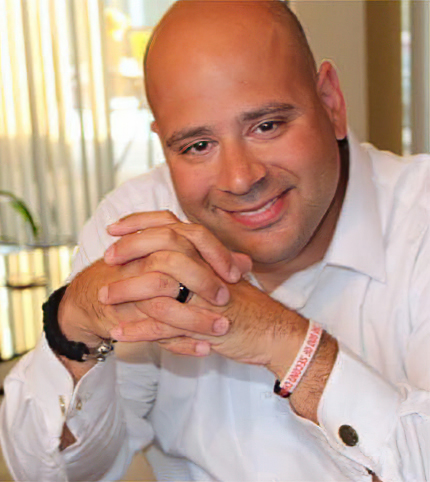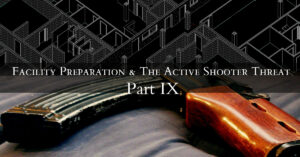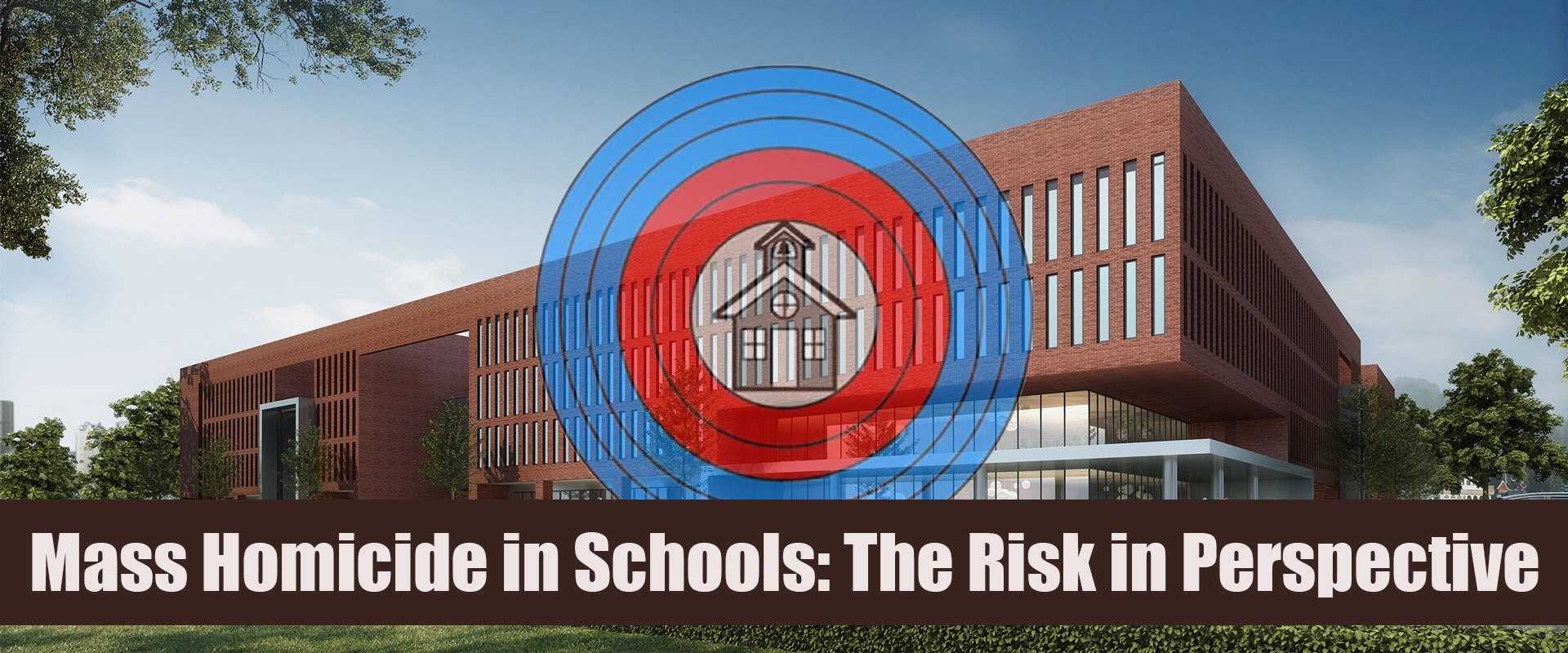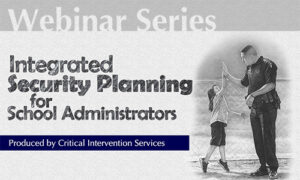
Barrier Delay Measures and The Double Edged Sword
While assisting a reporter after the Uvalde shooting, a question was posed that maybe warrants some discussion. During the interview, I described some examples of
The Critical Difference™
Most acts of mass homicide by student perpetrators are precipitated by communications or behavior that, if properly recognized and assessed, can indicate a potential threat. Considering the frequency of school shootings by student perpetrators (over 59%), implementing a formal system for recognizing, reporting, and assessing threatening behavior is a crucial first line of defense against active shooter violence.
To assist in recognizing and effectively responding to threatening situations, our consultants can assist the development of a Student Threat Assessment System (STAS) customized with consideration to the unique aspects of organizational structure and resources of your school.
In response to the school shootings of the 1990’s (which were by percentage overwhelmingly committed by students), the US Secret Service and National Center for the Analysis of Violent Crime (NCAVC) initiated a program in 2001 to study the characteristics and behavior of perpetrators in order to provide schools with guidance in identifying and managing threats before they escalate into violence. The product of this study was the Safe School Threat Assessment guidelines published in 2002. Over the past two decades, researchers have added further to the body of research on school violence by providing a rich foundation of knowledge to aid in the challenging process of discerning genuine threat situations from transient circumstances.
The Student Threat Assessment Systems developed by our consultants are based on best practices as promoted by the US Secret Service and the Association of Threat Assessment Professionals (ATAP). Our methodology is based on the Comprehensive School Threat Assessment Guidelines (CSTAG) model, as officially adopted in several states, and integrates further research about targeted violence and pre-attack behavior exhibited by student-aged perpetrators.
Developing a Student Threat Assessment System requires establishing a framework of policies, procedures, and management systems to proactively reduce the risk of a student progressing on the psychological pathway to targeted violence. When engaged as consultants, our team works in collaboration with school officials to lay the foundation for the program including:
When the Student Threat Assessment System plan is complete and ready for implementation, a training session is conducted for all school staff members assigned to the STATS team. As part of this training session, a tabletop exercise is conducted to demonstrate how the assessment process works in practical application.
The video below provides an overview of the psychological pathway to targeted violence in schools, threat assessment principles, and risk management options.
In addition to our services in developing threat assessment programs, CIS consultants provide on-call assistance to Florida schools in conducting student threat assessments. See our Student Threat Assessment Services page for more details.
The following video provides an overview of the student threat assessment process and some of the factors encompassed in the threat assessment programs we design for schools.
Learn more about our experience and school security expertise...

Craig Gundry, PSP, cATO, FCP
Craig Gundry is a CIS security consultant and expert witness with over 30-years of specialized focus on active shooter violence, school security, and terrorism. As an expert specialized in managing risks of targeted violence, Craig assisted in the development of ASIS International’s new WVPI-2020/AA, Workplace Violence and Active Assailant – Prevention, Intervention, and Response Standard and the Guardian SafeSchool Program® standards for school security.
Craig provides expert commentary for national news organizations and is a columnist for Workplace Violence Today magazine. He is also a TEDx presenter and speaker at conferences worldwide on topics related to terrorism, school security, and workplace violence.
In addition to his role at CIS, Craig is also a lead instructor for the S2 Institute’s Anti-Terrorism Officer course and advanced seminars on security risk assessment, active shooter preparations, physical security, and emergency response planning. His previous students include over 5,000 security and public safety professionals from over 50 nations. He also lectures on security topics for John Jay College of Criminal Justice and presents PSP® exam preparation courses for ASIS International.

Hector Rodriguez, CPP, cATO, FCP
Hector is the Assistant Vice President of Special Projects and a staff consultant focusing on school security, workplace violence, and protection of houses of worship.
Mr. Rodriguez joined Critical Intervention Services in 2003 as a protection officer and progressively rose through the ranks serving in every leadership position until his promotion to Chief of Uniformed Services in 2012.
In 2019, Hector was promoted to Vice President of Protective Services and assumed responsibility for the operations of over 300 security officers, field supervisors, and operations center personnel. As the senior commander for our School Protection Officer division, Hector supervised the implementation of the Guardian SafeSchool Program at ten Tampa Area schools.
In 2022, Hector joined the CIS Special Projects Division as the Assistant Vice President of Special Projects.

Chad Clayton, CPP
Chad is a CIS school security consultant with over twenty-five years of security industry experience.
Chad is board-certified as a Certified Protection Professional (CPP) through ASIS International. He is also a 1993 graduate of Executive Security International’s Advanced Executive Protection program and has an Associate in Arts Degree . He is an N.R.A certified Law Enforcement and Security Firearms Instructor in handgun and shotgun disciplines. In addition, Chad has conducted a variety of investigations and has hundreds of hours of advanced training in violence assessment, prevention, management, interviewing, interrogation, technical surveillance countermeasures, defensive tactics, and Crime Prevention through Environmental Design.

While assisting a reporter after the Uvalde shooting, a question was posed that maybe warrants some discussion. During the interview, I described some examples of

One of the most common problems we encounter in our work as security consultants is the absence of safe rooms and secure classrooms capable of

When many people think of physical security, the first ideas that come to mind are things like locks, alarm systems, screening with metal detectors, CCTV,

When teaching security planning workshops for school leaders, I find it valuable to begin the presentation with a brief discussion to put the risk of

The following series of school security training videos is produced as a webinar edition of the one-day Integrated Security Planning for School Administrators (ISPSA) seminar

Effective school security plans begin with a strategy. To most, this sounds like an obvious point. However, some of the most common problems I encounter
Since 1993, our consultants have provided hundreds of interviews to news media organizations related to prevention and response to active shooter violence and school security topics.
Contact us to discuss your school’s needs by calling Tel. +01 (727) 461-9417 or by completing the following form:
The Words of Our Clients and Peers
Toll-free: (800) 247-6055 | Tampa Bay Area: (727) 461-9417 | Hillsborough: (813) 910-4247 | Orlando: (407) 420-7945

Critical Intervention Services
The Critical Difference™
The staff of CIS is dedicated to providing each client with the finest quality of protective services available.
Our commitment and dedication to professional, ethical, and protocol conscious service is our trademark.
Preserving, projecting, and protecting our clients’ image and interests is our business.
Copyright © 2020 Critical Intervention Services, Inc. ® Florida “A” License: A9900261 • Florida “B” License: B9200107